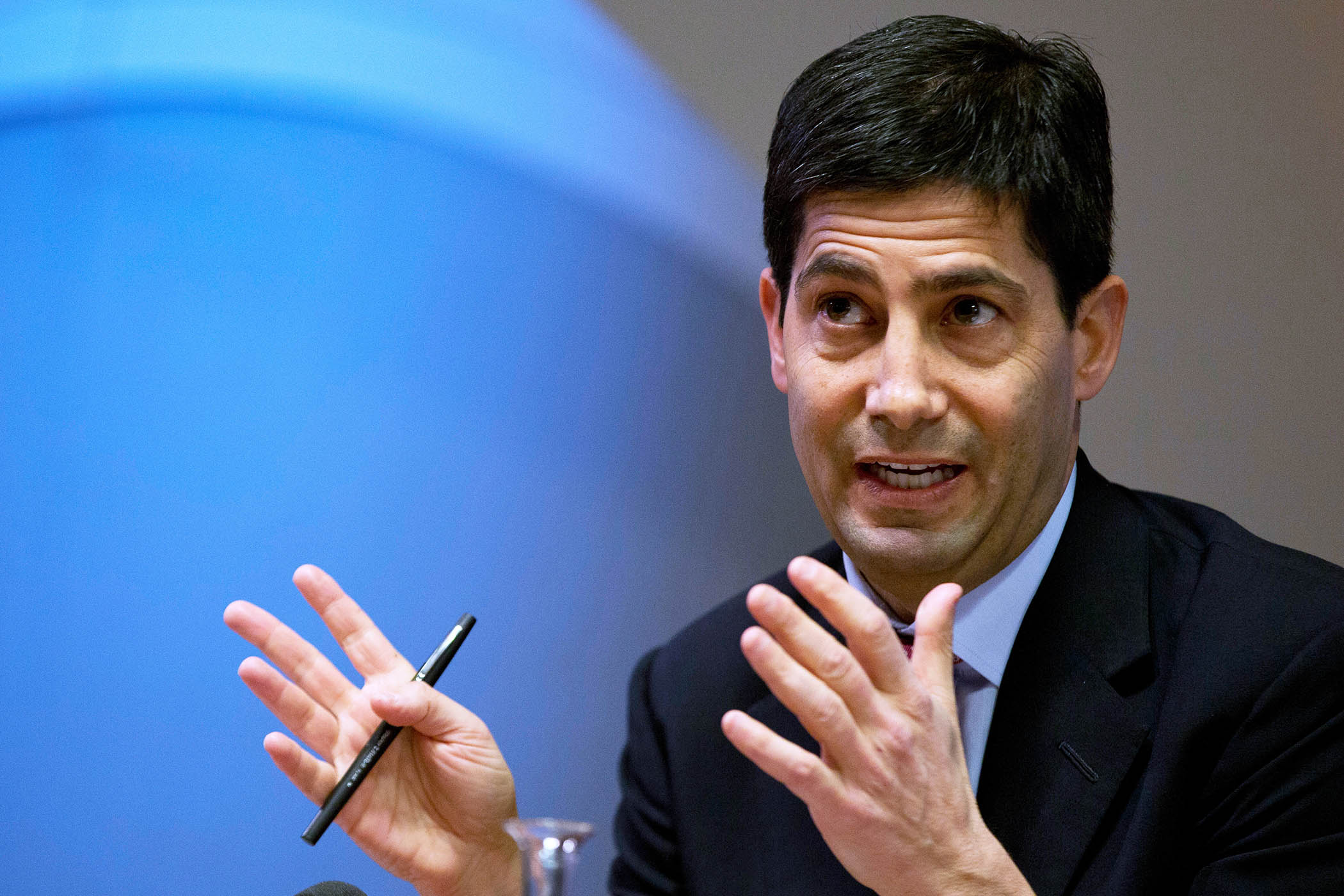Nuveshen Naidoo has been obsessed with space travel since he was a boy. A sustainability consultant, he’s an Elon Musk fan on both fronts. So when a friend messaged him a link for pre-IPO investments at SpaceX, he jumped.
“You might laugh, but I want to retire on Mars,” he told The Observer from his home in Johannesburg.
Having completed a successful test flight last month, Musk says SpaceX will launch its first mission to the red planet next year. “It’s a grand and ambitious project, and I’ve always tried to invest in causes I care about,” Naidoo said.
The link his friend sent was for a website seemingly run by Penn Park Capital Management, a company registered in Surrey. Describing itself as one of Europe’s leading fund managers, the group behind the site was quick to get back in touch. The person who rang, calling himself Charlie Barker, spoke with a British accent, and was well-versed in finance.
Naidoo invested $10,000 (£7,300), and later sold off his existing shares in Tesla to take full advantage of the SpaceX opportunity. Once all the funds were transferred, they ghosted him. “Looking around online, that’s when I saw the comments,” Naidoo said. “It was all a total scam.”
With his status as the world’s richest man, a maverick tech innovator and Maga’s edgelord supreme, Musk is an irresistible lure for some would-be investors. SpaceX is thought to be worth about $400bn but, as a private company, its shares are almost impossible to get hold of.
So-called “tokenised stocks” have grown in popularity in tandem with the vast expansion of private capital markets. According to professional services company EY, assets under management in global private markets more than doubled over the past decade, reaching about $24tn by the end of 2023, while the investable global public market portfolio has grown at an annualised rate of about 5.7% a year over the same period.
These stock tokens started with trading platforms such as Robinhood putting popular privately held stocks – OpenAI and SpaceX, for example – on a blockchain, and then selling the connected tokens to non-US customers. But evidence now points to cybercriminals exploiting their growing popularity.
Related articles:
I lost everything. I was almost ready to retire… I never thought I’d contemplate suicide. There’ve been times it was so rough.
I lost everything. I was almost ready to retire… I never thought I’d contemplate suicide. There’ve been times it was so rough.
Nuveshen Naidoo, fraud victim
In recent years, US authorities have received thousands of complaints about bots pushing non-existent SpaceXCoin coins on X, spoofed rocket launch livestreams featuring QR codes for bogus crypto donations, and scammers posing as the firm’s engineers on LinkedIn. Fraud using SpaceX’s name is rampant.
By the time he realised what was happening, Naidoo’s transfers to the group amounted to $160,000. Coupled with taxes on the Tesla shares and interest on the loans he took out, it has left him in a $217,000 hole.
Newsletters
Choose the newsletters you want to receive
View more
For information about how The Observer protects your data, read our Privacy Policy
“I lost everything. I was almost ready to retire, but it’s set me back 18 years,” he said. “I never thought I’d contemplate suicide. There’ve been times it was so rough, I was digging myself into despair.”
The group behind the Penn Park fraud appears to have used a particularly sophisticated boiler room scheme. Perpetrators hid their tracks using a series of fictional personas, bank accounts registered in multiple countries, and virtual phone numbers that allowed them to dupe victims into believing they were calling from the UK.
The Observer tracked down the Exeter-based founder and director of the real Penn Park Capital Management, Gavin Hall, who said he was “shocked” to learn of the fraud and had “no idea” it was being carried out by scammers masquerading as his employees.
“I knew nothing of this alleged fraud until a few days ago. The sophisticated and sinister use of my company’s name is horrifying,” Hall said, adding he reported the scam to the relevant UK authorities “as soon as I was made aware of this corporate identity theft”.
According to Neal Ysart, co-founder of open-source intelligence and cybercrime investigations thinktank the Coalition of Cyber Investigators, victims in Europe and southeast Asia alone have lost $5m to the bogus SpaceX offerings.
He explained it’s not uncommon for fraudsters to hijack the credentials of legitimate firms to appear more trustworthy to their targets. “Exploiting genuine company details allows scammers to persuade victims they’re investing their money with a credible and professional fund manager,” Ysart said. “To the untrained eye, the Penn Park fraud looked authentic.”

Elon Musk is an irresistible lure for investors wanting to cash in on SpaceX
Part of the attraction here is the scarcity factor. SpaceX is what’s known as a “unicorn” – a startup worth more than $1bn, but which has avoided selling its shares publicly despite monumental growth over the past two decades.
Being a private company, SpaceX is protected from the kind of stock market turbulence that has beleaguered Tesla since Musk’s controversial foray into far-right politics, and it remains exempt from financial disclosure requirements, meaning its latest $400bn valuation is based almost entirely on outsider estimates.
Private US firms do still have to disclose profits and losses once they reach 2,000 “shareholders of note”. SpaceX has further side-stepped this by strictly limiting its investor base, while allowing existing stakeholders to raise capital by selling off shares via special purpose vehicles (SPVs).
These are essentially holding companies that appear as a single entity on the group’s records, but in fact represent multiple interests, many of whom will have secured their stake directly through private offerings from Musk himself and members of his inner circle.
SpaceX, which did not reply to requests for comment on this story, has previously sent cease-and-desist letters to brokerages claiming to sell its shares via SPVs, and shut down investors’ sales to parties the board does not approve.
The waters are further muddied by the fact that some firms, Robinhood among them, have taken to offering “stock tokens” despite a lack of clarity over how exactly such blockchain-based instruments are supposed to represent equity in these companies.
Backdoor sales of SpaceX stock via SPVs have netted handsome profits for the select shareholders involved. But these limited issuances have also created rampant opportunity for fraudsters to prey on eager investors with no other means of buying into the firm’s success.
Hazem Daouk, an associate professor of economics at Cornell University, said the online culture of stock trading and technological streamlining of platforms may also play a role. “Many investors seem to treat the stock market like a get-rich-quick video game,” he explained. “Since SpaceX stock cannot be bought with the click of a mouse, it makes a proportion of the population vulnerable to scammers promising them a small slice of that magical cake.”
Naidoo is hardly alone among victims of the Penn Park fraud. Alex (not his real name), a fellow South African who works in the mining sector, said he came across the group by Googling SpaceX investment opportunities while attempting to recoup some of his losses after falling prey to a separate, unrelated fraud.
He said he lost $153,000 to the scam, including funds his children had contributed, and the damage means he is now struggling to care for his elderly parents. “They knew I was already in financial difficulty. They didn’t care,” he said. “At least I’ve been able to pay my children back. That was important to me. I felt that otherwise, they would never trust me again.”
The bogus Penn Park website disappeared in July. By that point, neither Naidoo nor Alex had heard from the group in months. The Observer understands the fraud has been reported to regulatory and legal authorities in both the UK and South Africa, though Naidoo said he’s not seen any progress, and holds out little hope for resolution.
For a group operating at this level, I wouldn’t be surprised if they’d been netting tens of millions each year
For a group operating at this level, I wouldn’t be surprised if they’d been netting tens of millions each year
Neal Ysart, Coalition of Cyber Investigators
While the Financial Conduct Authority is unable to comment on individual cases, a spokesperson for the City of London police, which oversees the UK’s Action Fraud hotline and National Fraud Intelligence Bureau assessment service, confirmed it has received those reports, and that the matter remains under review. The South African Police Service, which Naidoo and Alex said is investigating their claims, did not respond to repeated requests for a statement on their efforts.
Ysart stressed one of the things that made the Penn Park scammers so effective at winning their victims’ confidence was the group’s impressive facade. In fact, he said, it’s likely they used AI to create their polished website, user-friendly investor dashboards and historied LinkedIn profiles, as well as bespoke investment packs and press releases issued on respected platforms such as the London Stock Exchange (LSE).
A disclaimer on the LSE’s online newswire service clarifies that the organisation does not check notices published on its platform, for which companies need not necessarily be registered on the exchange, and that it’s not responsible for the materials syndicated on its site.
“There was nearly nothing to distinguish them from the real deal,” Ysart said. “For a group operating at this level, I wouldn’t be surprised if they’d been netting tens of millions each year.”
And it may be each year. Metadata on some of the documents obtained by Ysart go back to 2019, suggesting this isn’t the first time the group has struck. “They may now have gone to ground, but they’ll just recycle the same model,” he explained. “They’ll use a different website, and a different name, and just run the whole thing over again.”
Photographs by UPI/Alamy and Icon Sportswire/Getty Images


